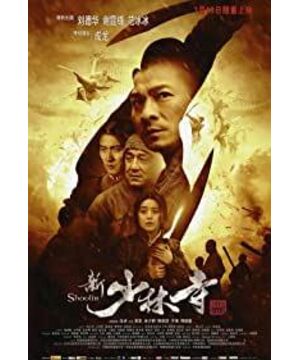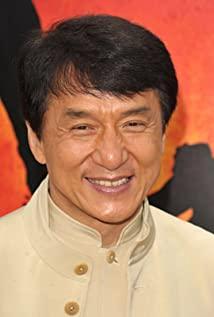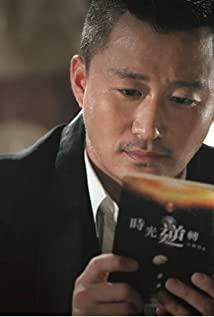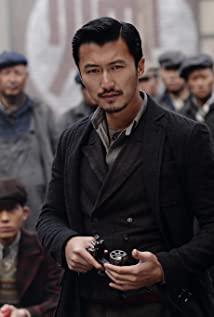With the warlords fighting and the people struggling to live as the background of the times, you can only know after watching the film. This is all for all kinds of "love", making the most selfless foreshadowing. Last year's "City on Alert" was criticized for being an emotional drama that forced new words to express sorrow. This time, Chen Musheng has done enough homework in "New Shaolin Temple". Count the crying scenes in the whole film, big and small, starry, more than ten places. Tears were not only pouring down the faces of the stars, but the extras were also sincere. Many frontal shots brought tears to the grief-stricken extras. The large area of the camera's flip cover and the many faces made it "heartbroken". This basically turns the positioning of "New Shaolin Temple" into a downright "tragedy". Presumably Chen Musheng is telling the world, who said I can't shoot emotional dramas, who is crying in front of the Buddha?
Of course, even if the subject matter is lackluster, it is still remarkable to put aside the old and new discussions for the time being and look at its sincerity. The perfect match between Andy Lau and Nicholas Tse this time has sparked some sparks. Hou Jie, played by Andy, has done a good job of laying the groundwork and persuasion from killing heart to hatred, and then sublimating to enlightenment. It is a completely reformed version of "The City on Alert". Now Nicholas Tse takes up the villain with ease and strength. The gnashing of teeth, the slightly trembling facial muscles, and the squinting, disdainful eyes, these three points of capture seem to have become the labels that he must use whenever he is a heinous character. Fan Bingbing, who provoked the female role, was finally able to complete the scene completely, but it was very dangerous, and all the edges of dying were pulled back, which is gratifying. Compared with her previous works, she cannot escape the tragic fate of early death and early death.
The portrayal of each character in "New Shaolin Temple" is very distinctive and the edges and corners are extremely prominent. This is a good thing and a bad thing. On the one hand, the character image is three-dimensional, and a character is analyzed and deconstructed in an all-round way, which can create a hearty sense of resonance. On the other hand, putting Baoquan too hard on emotional dramas will actually make the audience feel bored and conflicted, which will directly lead to the gap between literary dramas and martial arts dramas. Civil and martial arts should be both, and they should complement each other. Too many literary dramas cover up martial arts dramas, and sensationalism will inevitably turn into hypocrisy. Among them, the most prominent part is the "crying to rescue the victorious man". The pain of losing a daughter, the power of grief penetrated deep into the bone marrow, and plunged into the abyss of infinite self-blame, which is indeed one of the biggest turning points of the film. However, Hou Jie took the trouble to repeat it, and Shengnan returned to the light to add fuel to the fire, and the long-winded "last words" not only did not match his actual age and experience, but also seemed to be artificial and promiscuous. On the other hand, in "October Siege", the death of the supporting characters, big and small, is so fierce, it is naturally moving. That's because there are moves under different scenes, the foil of exquisite martial arts, and the effect of accumulation. Although "New Shaolin Temple" has a strong tragic color, and the room for emotional sublimation is also very open, but after all, it has the fetters of old and difficult themes, and it is more difficult to stimulate resonance. of Shaolin martial arts.
In the last blasting roar, the Shaolin Temple was destroyed at once, and it seemed quite atmospheric. This also entangles the hatred between Hou Jie and Cao Man, and the feelings are expressed and described very full. Chen Musheng has never been an artistic conception director who likes to play with words. The setting of the scene is simple and clear, simple and direct. Whether it is Hou Jie's conversion to the arms of the Buddha, or the explanations of potential bridges, they are presented in detail without any metaphor. "New Shaolin Temple" is destined to be an ordinary work, and within the current schedule, it probably won't cause many ripples. But no matter what, Jackie Chan is quite happy when he speaks Henan dialect.
View more about Shaolin reviews











